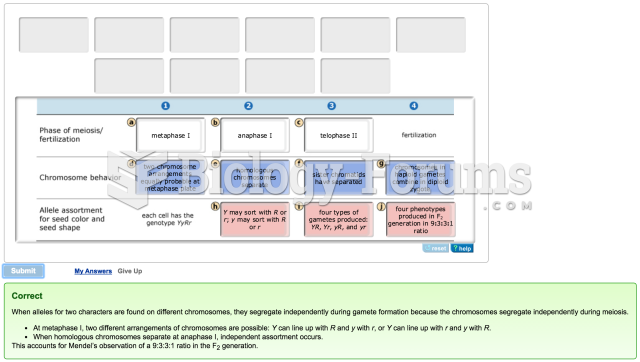|
|
|
Human stomach acid is strong enough to dissolve small pieces of metal such as razor blades or staples.
The top five reasons that children stay home from school are as follows: colds, stomach flu (gastroenteritis), ear infection (otitis media), pink eye (conjunctivitis), and sore throat.
The Romans did not use numerals to indicate fractions but instead used words to indicate parts of a whole.
If you use artificial sweeteners, such as cyclamates, your eyes may be more sensitive to light. Other factors that will make your eyes more sensitive to light include use of antibiotics, oral contraceptives, hypertension medications, diuretics, and antidiabetic medications.
Bacteria have flourished on the earth for over three billion years. They were the first life forms on the planet.







